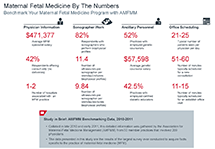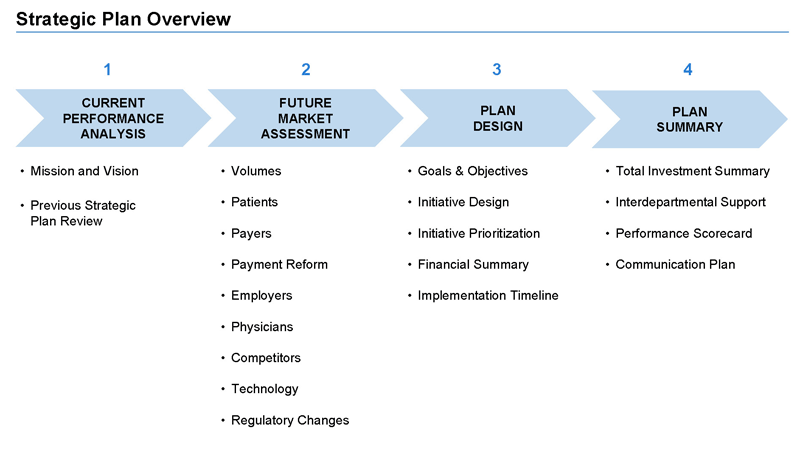Auto logout in seconds.
Continue LogoutState and local lawmakers are taking steps to reform how maternal deaths are investigated and identified in the United States, where the maternal death rate ranks among the highest of all wealthy nations, Nina Martin and Robin Fields report for ProPublica.
Background: US maternal mortality rate exceeds other developed countries
The renewed focus on maternal mortality follows a ProPublica investigation published last year that suggested the U.S. health system has focused more on improving fetal and infant survival and safety than it has on maternal health.
The investigation found while other countries have seen their maternal mortality rates decline over the past roughly 15 years, the U.S. rate has risen. ProPublica last year estimated between 700 and 900 women die from pregnancy or childbirth-related causes each year in the United States, and about 65,000 come close to dying.
Possible explanations for the United States' high mortality rate include that:
- About half of pregnancies in the country are unplanned, which means many women do not address chronic health issues prior to pregnancy;
- Caregivers might be unprepared to recognize symptoms of obstetric emergencies;
- Cesarean sections are more prevalent in the United States, resulting in more life-threatening complications;
- The U.S. health system is fragmented, which makes it harder for new mothers to access care; and
- Women in the United States are becoming mothers at older ages, and with more complex medical conditions.
States move to address maternal deaths
According to ProPublica, about 35 states and four cities—Baltimore, New York, Philadelphia, and Washington, D.C.—either have or are developing committees to examine maternal deaths.
For example, Indiana Gov. Eric Holcomb (R) in March signed into law a bill (SB 142) to create a maternal review committee designed to examine maternal deaths and near-deaths among expectant and new mothers. The committee is tasked with making policy recommendations to improve maternal health. According to ProPublica, a recent analysis found Indiana's maternal mortality rate is about 41 deaths per 100,000 births, which is double the maternal mortality rates in nearby Illinois and Ohio.
According to ProPublica, Washington, D.C.'s, Mayor Muriel Bowser and Oregon's Gov. Kate Brown (D) in the coming days are expected to sign similar measures into law.
According to ProPublica, the Oregon measure would establish a review committee that by 2021 would begin to examine severe maternal morbidity. According to ProPublica, the measure would cost the state more than $450,000, which would be a significant financial commitment toward a woman's health initiative. State Rep. Alissa Keny-Guyer (D) said, "I did think, wow, that's more money than I thought it was going to be, but no one blinked an eye. That just shows how much support this idea has."
The Washington, D.C., proposal—which would need to be signed into law and, like all legislation for the District of Columbia, would need to be reviewed by Congress before it could take effect—calls for the District to establish a committee to monitor maternal deaths. The committee would include health care professionals, representatives from community groups specializing in women's health, a social worker, and an individual "who has been directly impacted by a maternal mortality or severe maternal morbidity." The committee would have one full-time employee who would assist the committee.
Comparable proposals are pending in other states, including Connecticut, Maryland, New Jersey, and Pennsylvania, ProPublica reports.
In Maryland, the state House of Delegates passed a bill (HB 1518) introduced by Del. Jheanelle Wilkins (D) that would require the state's review committee to meet at least twice per year with a maternal mortality group. The group would include representatives from the Maryland Office of Minority Health and Health Disparities, the Maryland Patient Safety Center, women's health advocacy organizations, and someone who was affected by maternal mortality. The measure would require that the committee incorporate recommendations from the officials into its final yearly report. The state Senate is expected to consider the bill next month.
In Pennsylvania, lawmakers are advancing a bill to create a board to review maternal deaths. Under the bill, the board would have at least 14 members, most of whom are health care professionals and work in the communities where women are most affected by maternal deaths and lack access to care. State Rep. Ryan Mackenzie (R) said, "We're hoping to save lives," adding, "Based on the results in other states, we think this is realistic" (Martin/Fields, ProPublica, 3/26).
9 elements of top perinatal patient safety programs
Perinatal care is a high-volume service, accounting for one-fifth of all hospital stays. Yet it is also highly variable, with significant differences in complication rates for both vaginal and cesarean deliveries between hospitals nationwide.
This toolkit is designed to help hospitals seize the opportunity to strengthen perinatal patient outcomes. It includes best practices and resources collected from organizations that have successfully improved labor and delivery care by reducing clinical variability.
Don't miss out on the latest Advisory Board insights
Create your free account to access 1 resource, including the latest research and webinars.
Want access without creating an account?
You have 1 free members-only resource remaining this month.
1 free members-only resources remaining
1 free members-only resources remaining
You've reached your limit of free insights
Become a member to access all of Advisory Board's resources, events, and experts
Never miss out on the latest innovative health care content tailored to you.
Benefits include:
You've reached your limit of free insights
Become a member to access all of Advisory Board's resources, events, and experts
Never miss out on the latest innovative health care content tailored to you.
Benefits include:
This content is available through your Curated Research partnership with Advisory Board. Click on ‘view this resource’ to read the full piece
Email ask@advisory.com to learn more
Click on ‘Become a Member’ to learn about the benefits of a Full-Access partnership with Advisory Board
Never miss out on the latest innovative health care content tailored to you.
Benefits Include:
This is for members only. Learn more.
Click on ‘Become a Member’ to learn about the benefits of a Full-Access partnership with Advisory Board
Never miss out on the latest innovative health care content tailored to you.


